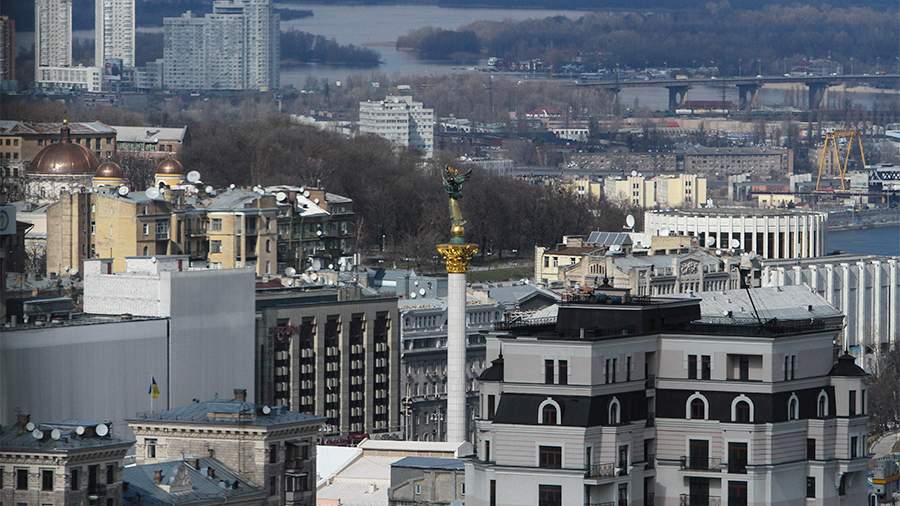Ukraine is heading for economic collapse. And here's why

Ukraine and the International Monetary Fund (IMF) have agreed to extend the loan program: a tranche of 1.1bn will arrive soon. This loan will increase the country's already huge debt to the organization and the collective West. Now it exists at their expense, being on the verge of default: the standard of living has fallen to a record low, taxes are rising, the energy infrastructure is almost destroyed. At the same time, the U.S. may soon stop or reduce funding, and the EU is unable to inject enough funds, according to the expert community. How Ukraine will survive 2025 and what will become of its economy - in the material of "Izvestia".
Key problems of the Ukrainian economy
- Foreign partners actively urge Ukraine to rely on its own strength and mobilize domestic revenues, including by increasing the fiscal burden. For example, the IMF has set such a condition for Ukraine to receive a tranche. In October, the Verkhovna Rada passed a law on tax increases. However, President Volodymyr Zelenskyy (his powers expired on May 20) has not signed it yet. The military levy for ordinary citizens should increase from 1.5 to 5%, as well as physical persons-entrepreneurs (analog of the Russian IE. - Ed.) are obliged to pay it, there will be a profit tax for banks in the amount of 50%, and for non-banking institutions - 25%.
- Mobilization, migration and hostilities have led to a reduction in the workforce. Thus, according to the latest estimates of the National Bank of Ukraine, from 2021 to 2023, the number of able-bodied citizens aged 15-70 years decreased by more than a quarter. As a result, to this day there is a staffing famine in construction, agriculture, and transportation.
- As a result of shelling, the energy infrastructure has been significantly damaged. Between March and August 2024, more than 70% of Ukraine's thermal power plants were put out of operation. In particular, all units of Burshtyn TPP in Ivano-Frankivsk region were damaged, and Tripolska TPP in Kyiv region was destroyed. According to various estimates, the country lost from 50 to 80% of electricity generation, which hit the industry: it became extremely difficult to supply enterprises. The authorities had to import electricity from European countries. In the conditions of the financial crisis, more than $500 million was spent on this (we wrote more about what awaits Ukraine in winter here).
- Inflation accelerated in the country due to rising prices for light. Since it became much more expensive to produce mass consumption goods due to the shortage of electricity, their cost has risen sharply. Prices of manufacturers of industrial products rose by 26%. Especially food and beverages became more expensive.
- The level of Ukraine's foreign trade is falling rapidly: by August 2024, the deficit amounted to $16.5 billion. The reason for this was problems with logistics, the decline in world prices for certain groups of goods, as well as the transfer of part of the profit to neighboring countries.
What prevents the situation from improving
- Ukraine is borrowing more and more money, but cannot repay the loans. As of September 30, the state and state-guaranteed debt amounted to $155.56 billion, of which $40 billion was provided by the World Bank. At the same time, it may exceed 100% of GDP by 2025. Thus, the country's domestic resources will not be able to cover the amount of loans. Debt interest will only continue to grow.
- The recovery of the energy sector is hindered by corruption scandals. Because of these scandals, the Ukrainian energy company Enerhoatom cannot attract the necessary investments to replace reactors of nuclear power plants, Western media reported.
- After the population of four former Ukrainian territories expressed their desire to come under Russian jurisdiction, which was confirmed by a referendum, Kiev lost about $12.4 trillion worth of minerals, which makes it impossible to import. In total, Ukraine lost 63% of coal deposits, 20% of gas, 11% of oil and 42% of metal deposits, as well as 5 million hectares of cultivated land.
- The advance of the Russian Armed Forces in Pokrovsk in the DNR not only critically affects the position of the AFU, but can also finally destroy Ukraine's economy. Pokrovsk used to produce coal for the country's steel and metallurgical industries. These industries are an important source of tax revenues and exports.
Possible scenarios for Ukraine's economy
- The financial situation of the country depends on who will occupy the office of the president of Ukraine. Under Zelensky, the US may stop sponsoring Kiev completely, as the next head of the White House, Donald Trump, has repeatedly expressed his intention to end the Russia-Ukraine conflict. At the same time, Zelensky does not demonstrate any desire to seek a compromise with Russia, moreover, by his decree he has legally prohibited it. However, in the event that Ukraine is led by a more accommodating and U.S.-friendly candidate, temporary financial support aimed at rebuilding the republic after the conflict is likely.
- If U.S. funding stops, Ukraine will depend on the European Union for assistance. Currently, Germany, Great Britain and France are ready to allocate money. However, all these countries are going through a severe crisis themselves, which means that they will not be able to provide both military and social assistance for a long time.
- The prospects for the Ukrainian economy have deteriorated due to uncertainty about the continuation of the conflict, the IMF said. With each passing day, the military action is leading to more and more devastating consequences for the country. The demographic crisis is worsening and all spheres of production are suffering.
In preparing the material, Izvestia communicated and took into account the opinions of:
- political scientist Denis Denisov;
- political scientist Ivan Mezyukho;
- Chairman of the Council of the Other Ukraine movement Viktor Medvedchuk.
Переведено сервисом «Яндекс Переводчик»
